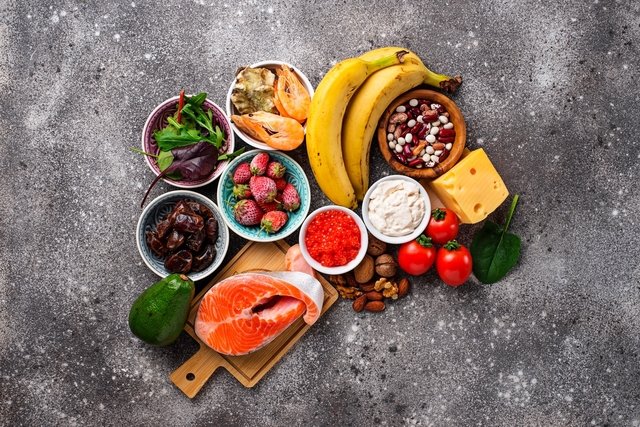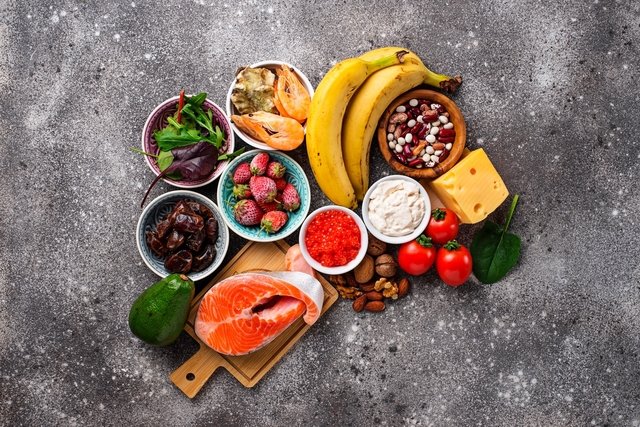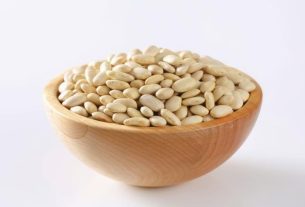Tryptophan is an essential amino acid for the formation and maintenance of muscles and for the production of serotonin and melatonin, compounds that act on the nervous system, helping to regulate mood, sleep, memory and appetite, being used in treatment and prevention of depression, anxiety, insomnia and the weight loss process.
Because it is an essential amino acid, that is, one that the body cannot produce, tryptophan must be obtained from eating foods such as dark chocolate, nuts, eggs and almonds, for example. See other foods rich in tryptophan.
In addition, tryptophan can also be obtained through supplementation, such as 5HTP, or L-tryptophan, in capsules. However, these supplements should only be consumed under the guidance of a nutritionist or doctor.

What is it for
Tryptophan is an amino acid that participates in several functions in the body, being indicated for:
- Fight depression;
- Build and maintain muscles;
- Control anxiety;
- Promote well-being;
- Improve memory;
- Reduce stress;
- Regulate sleep;
- Help with weight loss.
In addition, tryptophan is also used to help treat pain, attention deficit, hyperactivity, chronic fatigue and PMS.
The neurotransmitter serotonin helps in the formation of the hormone melatonin, which regulates the rhythm of the body’s biological clock, improving sleep quality, as melatonin is produced during the night.
List of foods rich in tryptophan
Some foods that are rich in tryptophan are:
- Cheeses;
- Eggs;
- Tofu;
- Salmon;
- Nuts;
- Almonds;
- Peanut;
- Brazil nuts;
- Banana.
In addition, tryptophan can also be found in the form of supplements, such as 5-HTP, or L-tryptophan, in capsules, with an intake of 100 mg to 3 g per day being recommended, depending on the situation being treated. Understand how to use the tryptophan supplement.
Does tryptophan help you lose weight?
Tryptophan participates in the production of serotonin, a neurotransmitter that promotes the control of anxiety and depression, reducing binge eating and thus helping to lose weight. See how to use tryptophan to help with weight loss.
Food is often related to emotions and, therefore, moments of anxiety and depression can encourage the intake of foods that promote pleasure, such as foods rich in carbohydrates and fats, including chocolates, ice cream, cakes and fried foods, for example. , increasing the calories in the diet and thus promoting weight gain.
Recommended daily intake
The daily intake of tryptophan varies according to age, sex and stage of life, as indicated in the following table:
In addition, pregnant women need to ingest 7 mg/kg of body weight per day of tryptophan. Breastfeeding women should consume 9 mg/kg of body weight of tryptophan per day.
Bibliography
- NATIONAL ACADEMIES OF SCIENCES, ENGINEERING, AND MEDICINE. Dietary Reference Intakes: The Essential Guide to Nutrient Requirements – Chapter E: DRI Values for Indispensable Amino Acids by Life Stage and Gender Group. 2006. Available at: <https://nap.nationalacademies.org/read/11537/chapter/53>. Accessed on March 31, 2022
- FRIEDMAN, Mendel. Analysis, nutrition, and health benefits of tryptophan. International Journal of Tryptophan Research. Vol.11. 1-12, 2018
- US NATIONAL LIBRARY OF MEDICINE NATIONAL INSTITUTES OF HEALTH. L-Tryptophan: Basic Metabolic Functions, Behavioral Research and Therapeutic Indications. 2009. Available at: <https://www.ncbi.nlm.nih.gov/pmc/articles/PMC2908021/>. Accessed on April 8, 2019

Sign up for our newsletter and stay up to date with exclusive news
that can transform your routine!
Warning: Undefined array key "title" in /home/storelat/public_html/wp-content/plugins/link-whisper-premium/templates/frontend/related-posts.php on line 12
Warning: Undefined array key "title_tag" in /home/storelat/public_html/wp-content/plugins/link-whisper-premium/templates/frontend/related-posts.php on line 13





